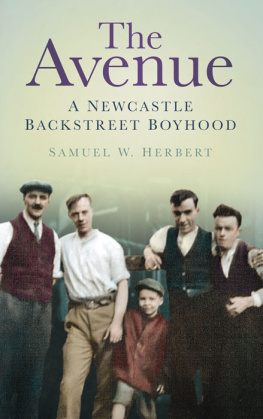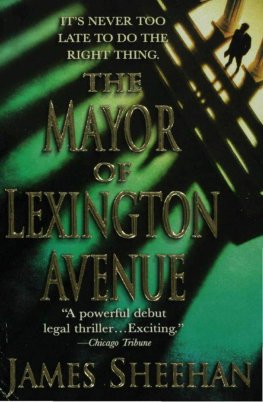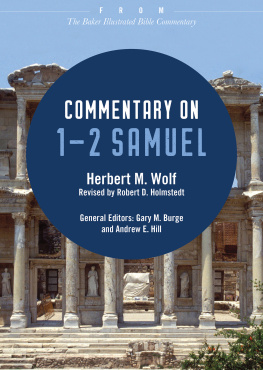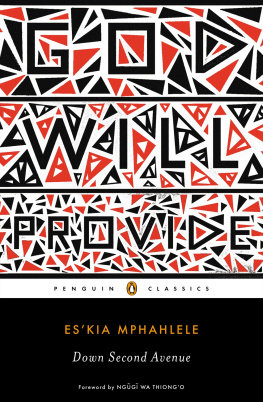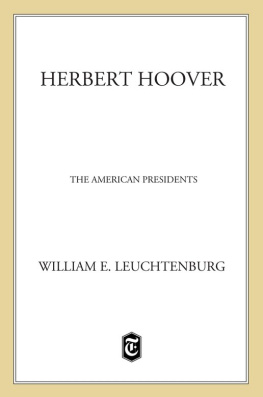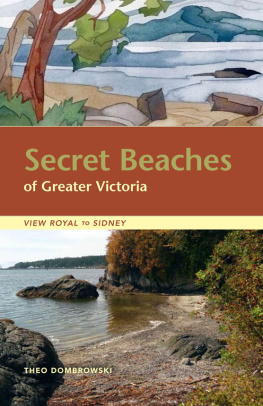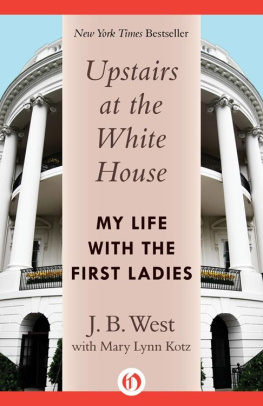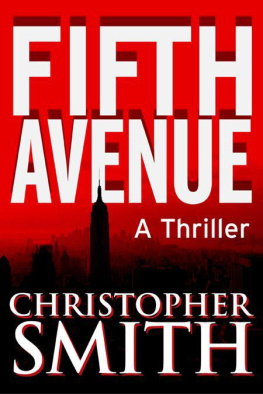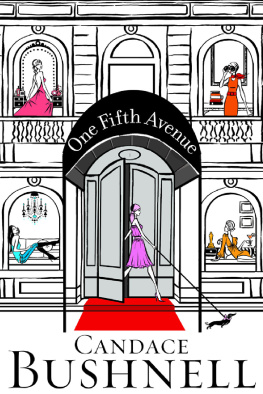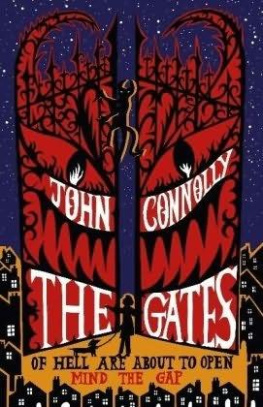I am dedicating this book to my dear father.
Contents
If the road you tread is stony
Long and often lonely
Should you think you are forsaken
Spurned and feel that fate has taken
All your hopes and dreams that mattered
Cast them down to lie there shattered
Should misfortune strike you often
Without the means the blows to soften
Lift your head and cry aloud
To him who dwells above the cloud
He will listen from up there
And give you courage your ills to bear.
As lifes milestones pass you by
Lighten your step but do not sigh
Or think about the pain and sorrow
Of yesterday, theres still tomorrow
To come and go and thus unfold
The pleasures, joys and love untold
But when your journeys end is nigh
Count your blessings ere they fly
Then look back with gladness say
Thank you Lord for this sweet day.
Samuel W. Herbert
To my dear wife, who must have grown tired of gazing at the top of my head for three years as I scribbled for dear life.
To my children, who, by their keen interest in my activities as a youngster, inspired me to have a go at compiling this book.
To my daughter-in-law, who gave up a great deal of her leisure time to decipher my atrocious writing and put it into type.
To all my friends of bygone days.
Samuel W. Herbert
Come on now, own up! How many of you thought I had lost my marbles when you first learned of my intention to embark upon what may, after all, prove to be an insuperable task? How many of you laughed at the idea of The Old Man writing his autobiography? (Well, I had a damned good laugh myself it seemed at first a ridiculous and over-ambitious venture!)
But why an autobiography? Why not a simple fictional story?
The answer, dear readers, is very simple; there is no need to resort to fiction to provide you with a story my own life can assure an almost never-ending source of material. It can furnish stories which by no stretch of the imagination could I have manufactured.
That there will be problems I know and appreciate only too well, and the fact that I have never kept a diary will present especial difficulties, because not being able to refer back means I will have to rely solely on my memory. (How much easier it would have been to flick over the written pages of memory and find therein all the basic ingredients, and how convenient to find them in chronological order, thus needing only elaboration.) But there is no point in dwelling on what might have been, is there?
I was always an avid reader and I know that it is possible to become so absorbed in a story that one can imagine oneself actually taking part in it. Thats how I would like you all to feel whilst you digest this humble effort.
I would like to say at once that whatever is lacking in the sensational will be more than balanced by variety. There are numerous amusing, even farcical episodes to recount, but conversely there is much tragedy and sorrow.
It may surprise you to learn that my decision to attempt a literary effort such as this could be the fulfilment of a dream, one that was implanted in my mind as I listened to the parting words of a man I hated and despised: Providing you study hard on your way through college, there is no reason why you should not do well in the field of literature. Thus spoke my Headmaster, Mr Cook, a brilliant teacher but a tyrant of the old school!
I often wondered whether his prediction would have borne fruit, and what his reaction would have been if his number one target for the cane had proved him to be right!
You may well ask why I have waited until I was seventy years old before tackling something which, after all, may be beyond my ability to complete.
To be truthful, the circumstances of my life have denied me the opportunity of making an earlier start; but now, having enjoyed the exuberance of youth, accepted and discharged the responsibilities of manhood and marriage, and savoured with some relief the less hectic years of middle age, I am now, in the evening of my life, compelled to live a much more peaceful one.
Surely then, with so much time on my hands, here is the opportunity, now is the time to fulfil that dream.
I did say there would be problems and sure enough I have found one I cannot overcome. Geordie born and bred though I am, I find it impossible to write in our dialect, which is unique in expression but soul-shattering when attempting to portray in prose.
I have therefore decided that plain English will be the only medium. So please remember when you are reading about the exploits of some raggy-arsed hooligans (with affection!) that almost all of them spoke little else but down-to-earth Geordie (yenaawarramean?)!
Now I have a decision to make should I or should I not write my story in a clean and prissy manner? If I do, then all the stories concerning those aforementioned ruffians will sound empty and insipid. It would be impossible to describe adequately their antics and expressions in language and intonation more befitting public schoolboys.
On the other hand, if I get down to basics, then there has to be a frankness, which you may find distasteful. But I cannot forget the years I spent in a hell-hole with its accompaniment of brutality, obscenity and other soul-destroying indignities.
How then can I write a true story if I have to make liberal use of tinsel when relating certain incidents? I cannot compromise; therefore the realities of some situations in which I was involved or witnessed will be described in the actual language used at the time, which, dear readers, means an occasional use of four-letter words. My decision to be frank will be endorsed by the knowledge that you would prefer a true story rather than a fairytale.
Now that I am about to begin, I have opened one small door of my memory bank and there is, gushing forth, a veritable avalanche which almost overwhelms me, and such a gigantic hotchpotch of nostalgic incidents has to be thoroughly sorted out, which makes me appreciate to the full the magnitude of the task I have undertaken.
Finally, in order that continuity be preserved, I have taken advantage of many stories concerning my young life as told me by my brother Fred and sometimes by my parents.
So now, here it is, the story of my life as a boy and a young man.
I hope you enjoy it.
Samuel W. Herbert (19081983)
Newcastle, 1983
It was 1913 and spring was in the air, birds were twittering, flowers were beginning to bloom and new-born lambs were gambolling. Hey nonny nonny and tra-la-la!
Thats how it was on the day this chronicle begins; but I certainly had no interest in those miracles of nature, because I was perched precariously on top of the garden railings that fronted my home. The trouble was I couldnt move because one of those fiendishly sharp spikes was firmly embedded in my bum! I had disobeyed my parents order not to climb and was now paying the penalty. It felt like I had been there for ages. But crikey, did I yell!
A passer-by came to the rescue and attempted to lift me off, but unfortunately for me, the man didnt lift me high enough and the damned spike ripped my back-side open. The shriek I gave brought Mother racing out of the house and she almost threw a fit when she saw the blood pouring down my leg. There followed a frantic dash to a doctor, who promptly ordered me to the Royal Victoria Infirmary, where I had several stitches inserted in my rear end.
Mother really went to town with me as we made our way home. You are just an awkward young sod, she snapped, and dont think I am going to carry you all the way home; you can walk, sore arse or no sore arse!
Next page
